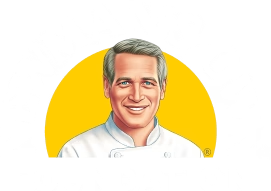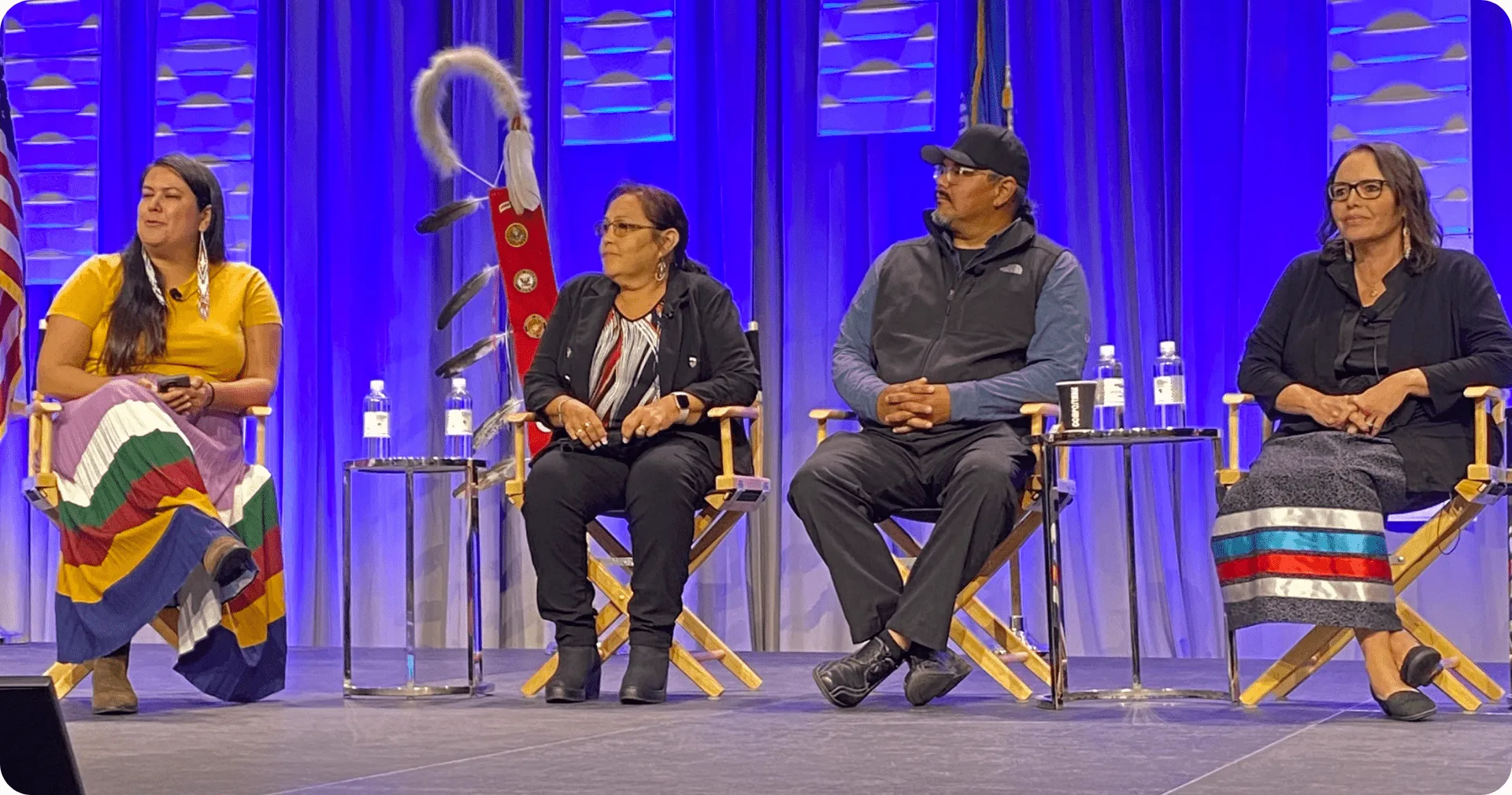“I hold in my hand the genius of Indigenous agriculture, the Three Sisters. Together these plants—corn, beans, and squash—feed the people, feed the land, and feed our imaginations, telling us how we might live.”
Robin Wall Kimmerer
Citizen, Potawatomi Nationby Maria Givens
This September, over 600 Native nutrition educators, farmers, advocates, youth, and Elders gathered at Mystic Lake on the Shakopee Mdewakanton Sioux Community lands in Minnesota. We were there to share knowledge about Native food systems, food sovereignty, nutrition, and health. Over the three-day event*, conference participants ate together, learned together, laughed together, and grew together.
This wasn’t just another conference with mundane sessions on metrics and best practices around nutrition. It was a space where Indigenous people from all nations could come together to learn from each other’s successes and failures, and to gain wisdom and strength from the stories that we carry, with a focus on community building and the formation of new collaborations between attendees. Like the Three Sisters—corn, beans, and squash—we can use our ancestral best practices and modern learnings to “feed our people, feed our land, and feed our imaginations”, and I hope over time inspiring change across the United States and even the world to reimagine and reclaim more sustainable food systems..
We have a lot we can learn from the Native concept of the Three Sisters—a symbiotic relationship between corn, bean, and squash plantings. These three foods have been grown together by Indigenous peoples for thousands of years. Together they grow stronger than when planted individually, with each plant contributing something unique to the shared soil and helping create stronger, healthier crops across the board. After all, an acre planted with the Three Sisters will produce more food than an acre of each sister planted alone. These sisters remind me of how diverse approaches combine to strengthen our community. After working with Newman’s Own Foundation on their strategic initiative for Indigenous Food Justice for the past two years—the continuation of work they’ve been supporting since 1996—I can’t help but think of the roles these sisters play as similar to the grantees in the Newman’s Own “garden”.
Corn grows first and is the eldest sister.
Last fall, I traveled to Santa Rosa, California, to take pictures and videos of the youth at the California Indian Museum and Cultural Center (CIMCC) for Newman’s Own Foundation. On this trip, I marveled at the passionate commitment of the Pomo youth at the CIMCC and how they have woven together acorns, a traditional Pomo food, and entrepreneurship by creating Acorn Bite bars. I think of these youth (age aside) like I think of Corn, the older sister, in charge, possessing knowledge, and paving the way for the younger ones to follow in their footsteps. They are reconnecting with cultural knowledge in a new, creative way and using it to enrich their community.
Beans grow second and provide nutrients for their sisters to grow better.
At the Native Nutrition Conference, I got to know Rose Fraser, Executive Director of the Oyate Teca Project based on the Pine Ridge Indian Reservation in South Dakota. Oyate Teca brings Lakota youth together, teaching them how to garden and how foods are our cultural relatives. Rose spoke to the importance of culturally significant nutrition programming. When their culture is woven throughout their programs, the Oyate Teca Project youth are more engaged. I see this interweaving of culture like the nutrients that beans inject into the soil to help their sisters grow. Culture is the nutrient we all need, and without it, we don’t grow as strong.
Squash is the little sister, but provides protection for its two older sisters.
I’ve admired the work of the First Nations Development Institute for many years now. First Nations works across Indian Country to build Indigenous economies and invest in Native Youth, through over $10M of grant-making, capacity-building, and policy and advocacy work. I think they embody the youngest sister because they venture off investing in innovative new strategies that help build Native-led and designed local food systems from the ground up. They provide the protection other organizations need and enable systems change by supporting Indigenous communities and Native youth with financing, support, and advocacy.
Each one of these organizations plays a unique role and adds to the richness of the Newman’s Own Foundation grantee portfolio in Indian Country.
I could tell you that since 1996, Newman’s Own Foundation has had a presence in Indigenous communities and that in 2022, it made Indigenous Food Justice one of its three core programmatic areas in service of its mission to nourish and transform the lives of children facing adversity, now supporting 30+ organizations working across Indian Country. But that doesn’t tell the whole story.
When I look at the group of Newman’s Own Foundation grantees in Indian Country, I see a garden. I see organizations like the California Indian Museum, Oyate Teca Project, and First Nations Development Institute growing in all different directions, learning from each other, coming together, and going their own way whenever it seems right. This garden is interwoven and fruitful. It yields more than it would if each grew in isolation. Although this garden of grantee partners spans the entire country, many of us came together last month in Minneapolis. We grew a little together, too.
*Newman’s Own Foundation made a grant to the conference organizer, the University of Minnesota to support this event as part of our commitment to Indigenous Food Justice.
About the Author
Maria Givens is an enrolled member of the Coeur d’Alene Tribe and co-founder of Tahoma Peak Solutions, a Native woman-owned communications and food sovereignty firm based in Seattle, Washington. Maria and Tahoma Peak Solutions have worked with Newman’s Own Foundation since 2021. Maria has previously written for Vox, the Daily Yonder, and Civil Eats.


